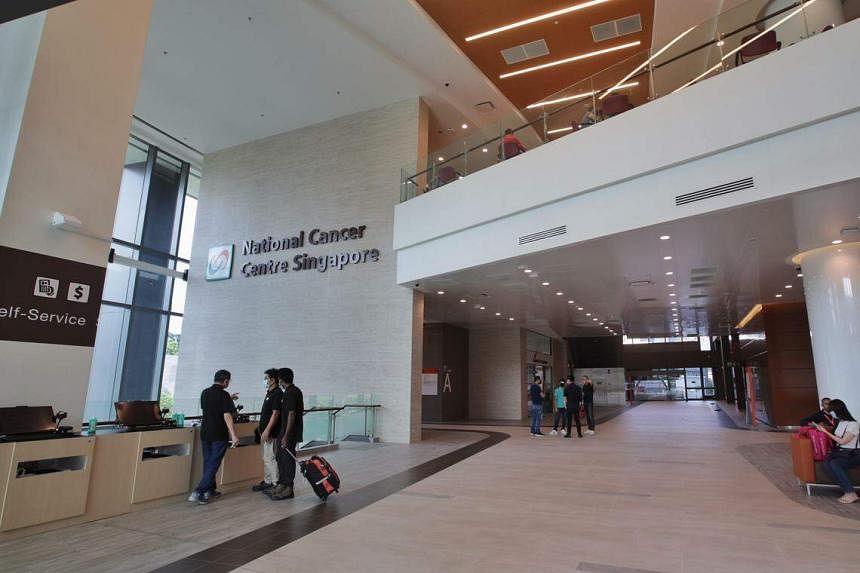
SINGAPORE – A new $820 million National Cancer Centre Singapore (NCCS) building – which has twice the capacity of the centre’s previous premises – officially opened on Thursday, at a ceremony officiated by Deputy Prime Minister Lawrence Wong.
“One in four Singaporeans is likely to get some form of cancer over their lifetimes, and close to 40 per cent diagnosed with cancer currently are aged 70 and above,” said Mr Wong.
“The good news is that cancer care and survival rates have improved significantly since the 1990s. The state-of-the-art facility will provide more comprehensive and holistic care for our cancer patients, housing clinical services, research, education and more, all under one roof.”
Cancer cases have been rising over the past 20 years and are expected to climb as Singapore rapidly ages. The increased load meant that NCCS had to move some of its administrative functions out of its old six-storey building at 11 Hospital Crescent to more than one other place within the Singapore General Hospital (SGH) campus.
Located at 30 Hospital Boulevard, a stone’s throw from the previous building, its new 24-storey home is not only bigger but also has enhanced facilities for cancer care, rehabilitation, research and education. It is directly connected to Outram Park MRT station via a link bridge.
The old building, which NCCS had occupied for more than 20 years, had 36 consultation rooms and 55 chemotherapy recliner chairs and beds. The new NCCS building has 64 consultation rooms and seven treatment suites with 108 chemotherapy recliner chairs and beds.
It features high ceilings, offering a sense of space, and plenty of natural light streaming in through the ample glass cladding.
Professor William Hwang, NCCS’ chief executive, said there was a need to double the capacity at the centre to address the needs of cancer patients in Singapore. He cited the 78,000 new cancer cases that were reported here between 2015 and 2019, and said that beyond 2030, this number is expected to soar.
By that time, one in four Singaporeans will be aged 65 and above. While medication, diet and healthy lifestyles can help reduce the incidence of many diseases and control them, one unavoidable aspect is genetic mutations that happen in the cells as one grows older, said Prof Hwang. These can cause cancer, he said.
NCCS, which sees the majority of cancer cases in the public healthcare sector, has about 160,000 patient visits a year. “With a doubling of capacity, we will have a doubling in terms of the ability to treat patients, contingent on us getting more manpower in the later years,” said Prof Hwang.
At the same time, NCCS also has three satellite clinics around Singapore.
The centre now has more than 200 oncologists and surgeons, more than 210 nurses, and more than 260 allied health professionals.
With Healthier SG – Singapore’s major preventive care strategy – slated for launch in July to keep the population healthy, NCCS has also begun to focus some of its efforts on cancer screening.
https://news.google.com/rss/articles/CBMigwFodHRwczovL3d3dy5zdHJhaXRzdGltZXMuY29tL3NpbmdhcG9yZS9oZWFsdGgvbmV3LTgyMG0tbmF0aW9uYWwtY2FuY2VyLWNlbnRyZS1idWlsZGluZy1oYXMtZG91YmxlLXRoZS1jYXBhY2l0eS1vZi1wcmV2aW91cy1wcmVtaXNlc9IBAA?oc=5
2023-05-18 04:17:49Z
2043122698
Tidak ada komentar:
Posting Komentar